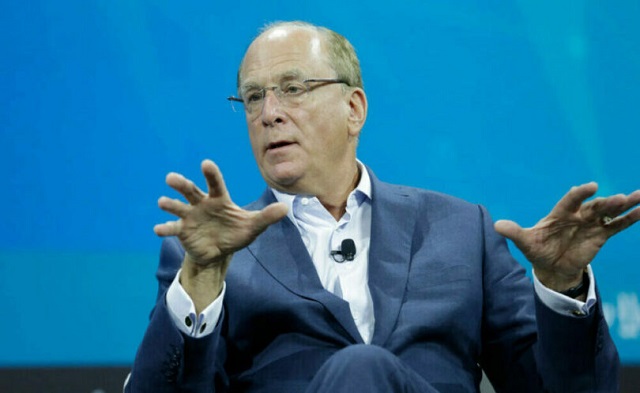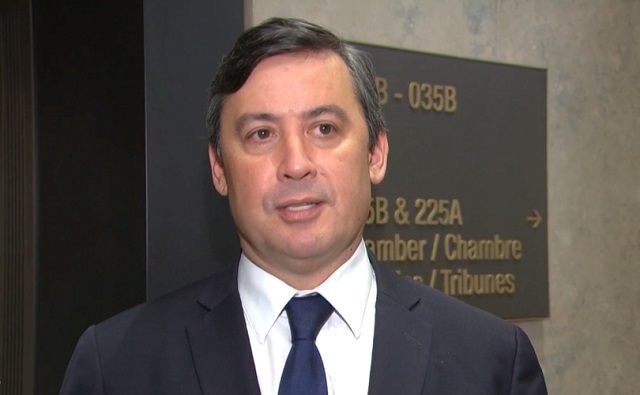Alberta
Tough times call for free access to mental health – Alberta NDP

From the Alberta NDP
NDP CALLS FOR ALBERTANS TO HAVE ACCESS TO FIVE PROVINCIALLY FUNDED MENTAL HEALTH SESSIONS
Alberta’s NDP Official Opposition is calling on the provincial government to help all Albertans get through the incredibly difficult COVID-19 pandemic by making five mental health therapy sessions available through the provincial insurance plan, with an online assessment tool to help connect them with a mental health professional.
“Albertans have endured incredible stress throughout this year, from job losses to social isolation to the loss of loved ones,” said Rachel Notley, Leader of Alberta’s NDP Official Opposition. “Heading into the holidays, I know how painful it is that we won’t be able to gather with our friends and extended family. For many, the holidays are always tough, and this year will be especially hard.
“Many Albertans need someone to talk to and help them process everything they’ve been through in a healthy way.
The Opposition is calling on the provincial government to launch a simple online tool to help Albertans assess their mental health needs and then connect them to five provincially insured sessions with a registered healthcare provider. Using the provincial health care plan means no out-of-pocket costs for anyone with a provincial health number. While the cost of the recommendation will depend on Albertans’ uptake of the program, the Opposition recommends the government make a commitment to fund up to $100 million worth of mental health support.
Dr. Keith Dobson is a Professor of Clinical Psychology at the University of Calgary, as well as a senior consultant for the Opening Minds program of the Mental Health Commission of Canada. He has been at the University of Calgary since 1989 in a variety of roles, including Head of Psychology and a member of the Board of Governors. He is a recognized expert in the field of mental health and the development and delivery of psychological treatment programs.
“Mental health needs were largely unmet before the pandemic and have grown considerably since,” Dr. Dobson said. “Estimates are that rates of anxiety and depression have at least doubled since early 2020, and that rates of alcohol use and domestic violence have also increased. We have evidence-based psychological and counseling services that have been, and can be, delivered using technology. The College of Alberta Psychologists has well developed standards for the provision of this service, and there is an available pool of trained and qualified service providers. This initiative is timely and needs serious consideration by the government.”
Dr. Judi Malone, CEO of the Psychologists’ Association of Alberta, said all Albertans, regardless of income, should have access to psychological services.
“The psychological health and wellness of Albertans can be substantively improved by enhancing access to appropriate mental health treatment,” Malone said. “Community and family supports are invaluable but when psychotherapy is warranted it needs to be provided by qualified professionals. Cost is a barrier to access as there are few publicly funded psychological services.
“COVID-19 has impacted the psychological health of Albertans who were already reeling from our economic downturn,” Malone added. “We can avoid a psychological pandemic by investing in the psychological health and wellness of Albertans. Access to necessary psychological support was difficult before – and that need for the services of registered psychologists continues to grow. Without policies, programs, and services in place we cannot meet this impending demand.”
A recent study from Morneau-Shepell, a human resources firm, said Albertans reported the highest increase in stress levels of all Canadians in November. Albertans have reported some of the worst mental health in Canada throughout 2020, and currently have the third-worst, ahead of Manitoba and Saskatchewan.
Yesterday, on Human Rights Day, the Alberta Division of the Canadian Mental Health Association, renewed its call for Albertans to have access to mental health care services in accordance with the five principles of Medicare: universal, comprehensive, accessible, portable and publicly administered. The expansion of services recommended by the Opposition would be an important step towards that goal in Alberta.
“The pandemic has made our lives much more difficult, and it’s also driven home how important it is to be proactive about our own health,” said Heather Sweet, Opposition Critic for Mental Health and Addiction. “This is an opportunity for the province to give Albertans the tools to do that. Over the past months, we have all gotten used to using an online tool to screen ourselves for the COVID-19 virus, and to be connected to testing services and health advice.
“Albertans should be able to assess their mental health at home, and have confidence that they will be connected to the help they need.”
Alberta
Red Deer Doctor critical of Alberta’s COVID response to submit report to Danielle Smith this May

From LifeSiteNews
Leading the task force is Dr. Gary Davidson, who was skeptical of mandates at the time.
Alberta Premier Danielle Smith will soon be receiving a little-known report she commissioned which tasked an Alberta doctor who was critical of the previous administration’s handling of COVID to look into how accurate the province’s COVID data collection was, as well as the previous administration’s decision-making process and effectiveness.
As noted in a recent Globe and Mail report, records it obtained show that just less than one month after becoming Premier of Alberta in November of 2022, Smith tasked then-health minister Jason Copping to create the COVID data task force.
Documents show that the Alberta government under Smith gave the new task force, led by Dr. Gary Davidson – who used to work as an emergency doctor in Red Deer, Alberta – a sweeping mandate to look at whether the “right data” was obtained during COVID as well as to assess the “integrity, validity, reliability and quality of the data/information used to inform pandemic decisions” by members of Alberta Health Services (AHS).
As reported by LifeSiteNews in 2021, Davidson said during the height of COVID that the hospital capacity crisis in his province was “created,” was not a new phenomenon, and had nothing to do with COVID.
“We have a crisis, and we have a crisis because we have no staff, because our staff quit, because they’re burned out, they’re not burnt out from COVID,” Davidson said at the time.
Davidson also claimed that the previous United Conservative Party government under former Premier Jason Kenney had been manipulating COVID statistics.
In comments sent to the media, Smith said that in her view it was a good idea to have a “contrarian perspective” with Davidson looking at “everything that happened with some fresh eyes.”
“I needed somebody who was going to look at everything that happened with some fresh eyes and maybe with a little bit of a contrarian perspective because we’ve only ever been given one perspective,” she told reporters Tuesday.
“I left it to [Davidson] to assemble the panel with the guidance that I would like to have a broad range of perspectives.”
Smith took over from Kenney as leader of the UCP on October 11, 2022, after winning the leadership of the party. The UCP then won a general election in May 2023. Kenney was ousted due to low approval ratings and for reneging on promises not to lock Alberta down during COVID.
After assuming her role as premier, Smith promptly fired the province’s top doctor, Deena Hinshaw, and the entire AHS board of directors, all of whom oversaw the implementation of COVID mandates.
Under Kenney, thousands of nurses, doctors, and other healthcare and government workers lost their jobs for choosing to not get the jabs, leading Smith to say – only minutes after being sworn in – that over the past year the “unvaccinated” were the “most discriminated against” group of people in her lifetime.
As for AHS, it still is promoting the COVID shots, for babies as young as six months old, as recently reported by LifeSiteNews.
Task force made up of doctors both for and against COVID mandates
In addition to COVID skeptic Dr. Gary Davidson, the rather secretive COVID task force includes other health professionals who were critical of COVID mandates and health restrictions, including vaccine mandates.
The task force was given about $2 million to conduct its review, according to The Globe and Mail, and is completely separate from another task force headed by former Canadian MP Preston Manning, who led the Reform Party for years before it merged with another party to form the modern-day Conservative Party of Canada.
Manning’s task force, known as the Public Health Emergencies Governance Review Panel (PHEGRP), released its findings last year. It recommend that many pro-freedom policies be implemented, such as strengthening personal medical freedoms via legislation so that one does not lose their job for refusing a vaccine, as well as concluding that Albertans’ rights were indeed infringed upon.
The Smith government task force is run through the Health Quality Council of Alberta (HQCA) which is a provincial agency involved in healthcare research.
Last March, Davidson was given a project description and terms of reference and was told to have a final report delivered to Alberta’s Health Minister by December of 2023.
As of now, the task force’s final report won’t be available until May, as per Andrea Smith, press secretary to Health Minister Adriana LaGrange, who noted that the goal of the task force is to look at Alberta’s COVID response compared to other provinces.
According to the Globe and Mail report, another person working on the task force is anesthetist Blaine Achen, who was part of a group of doctors that legally challenged AHS’s now-rescinded mandatory COVID jab policy for workers.
Some doctors on the task force, whom the Globe and Mail noted held “more conventional views regarding the pandemic,” left it only after a few meetings.
In a seeming attempt to prevent another draconian crackdown on civil liberties, the UCP government under Smith has already taken concrete action.
The Smith government late last year passed a new law, Bill 6, or the Public Health Amendment Act, that holds politicians accountable in times of a health crisis by putting sole decision-making on them for health matters instead of unelected medical officers.
Alberta
Alberta’s baby name superstar steals the show again

Olivia and Noah continue to reign as top baby names in 2023.

Olivia and Noah are once again topping the lists in Alberta, highlighting the enduring appeal of the names. Olivia maintains a record setting streak as the most popular girls name in Alberta for the 11th year in a row, while Noah remains top pick for boys’ names for a fifth consecutive year.
“Congratulations to those who welcomed a new addition to their family in 2023. Bringing a child into the world is a truly momentous occasion. Whether the name you chose was in the top 10 or one of a kind, these names are only the beginning of the endless possibilities that lie ahead for each child. I look forward to supporting this generation by ensuring Alberta remains a place where they can thrive.”
In choosing names for their new arrivals, parents appear to have found inspiration in a variety of places. Some parents may have been inspired by plants like Ivy, Rose, Juniper, Poppy, Azalea or in nature like Wren, River, Meadow and Flora.
Others may have taken a literary approach with names like Bennett, Sawyer, Juliet and Atticus or been inspired by notable names from religious texts like Eve, Noah, Mohammed and Gabriel.
As always, popular culture may have had an influence through famous musicians (Aretha, Lennon, Presley, Hendrix), athletes (Beckham, Crosby, Evander), and even fairytale princesses (Tiana, Jasmine, Aurora, Ariel, Belle).
Quick facts
- A total of 47,263 births were registered in Alberta in 2023
- Notable changes to the early 2020s lists:
- Evelyn rose to seventh place on the girls’ names list after tying for 19th place in 2022.
- Emily returned to the top 10 list for girls after taking a short break in 2021 and 2022 after a 10-year stretch in the top 10 that started in 2010.
- Violet has cracked the top 10 list for the first time in at least four decades, tying with Ava and Emily in ninth place.
- The top 10 boys’ names remain the same as last year but with a slight change in order.
- Historically, girls’ names that held the No. 1 spot for the longest consecutive time period include:
- Olivia: 11 years (2013-2023)
- Jessica: six years (1990-1995)
- Emily: five years (1998-2002)
- Historically, boys’ names that held the No. 1 spot for the longest consecutive time period include:
- Ethan: nine years (2001-2009)
- Liam: seven years (2010-2016)
- Matthew: five years (1995-1999)
- Noah: five years (2019-2023)
- Parents have up to one year to register their child’s birth. As a result, the list of 2023 baby names and birth statistics may change slightly.
Boys’ names and frequency – top 10 names 2018-23
(In brackets is the number of babies with each name)
| Place | Boy Names (2023) | Boy Names
(2022) |
Boy Names (2021) | Boy Names (2020) | Boy Names (2019) | Boy Names (2018) |
| 1 | Noah (276) | Noah (229) | Noah (274) | Noah (239) | Noah (275) | Liam (225) |
| 2 | Liam (181) | Liam (176) | Jack (220) | Oliver (229) | Liam (234) | Oliver (212) |
| 3 | Oliver (178) | Theodore (173) | Oliver (208) | Liam (206) | Oliver (225) | Noah (199) |
| 4 | Theodore (173) | Oliver (172) | Liam (198) | Benjamin (182) | Ethan (213) | Ethan (188) |
| 5 | Jack (153) | Jack (159) | Theodore (191) | William (178) | Jack (198) | Logan (182)
Lucas (182) |
| 6 | Henry (146) | William (146) | William (174) | Jack (169) | William (185) | Jacob (181) |
| 7 | Lucas (140) | Benjamin (138) | Ethan (162) | Lucas (163) | Lucas (174) | William (178) |
Girls’ names and frequency – top 10 names 2018-2023
(In brackets is the number of babies with each name)
| Place | Girl Names (2023) | Girl Names
(2022) |
Girl Names (2021) | Girl Names (2020) | Girl Names (2019) | Girl Names (2018) |
| 1 | Olivia (210) | Olivia (192) | Olivia (210) | Olivia (236) | Olivia (229) | Olivia (235) |
| 2 | Amelia (145) | Sophia (152) | Charlotte (166) | Emma (184) | Charlotte (188) | Emma (230) |
| 3 | Sophia
(138) |
Emma (149) | Ava (165) | Charlotte (161) | Sophia (181) | Charlotte (175) |
| 4 | Charlotte
(135) |
Amelia (133) | Emma (164) | Ava (159) | Emma (178) | Emily (164) |
| 5 | Emma (133) | Harper (125) | Amelia (161) | Sophia (151) | Ava (161) | Ava (161) |
| 6 | Isla (120) | Charlotte (117) | Sophia (137) | Amelia (145) | Amelia (159) | Abigail (153) |
| 7 | Evelyn (114) | Ava (115) | Isla (135) | Isla (133) | Emily (150) | Harper (150) |
| 8 | Chloe (101)
Violet (101) |
Isla (101) | Abigail (120)
Chloe (120) |
Emily (127) | Abigail (141) | Sophia (146) |
| 9 | Ava (99) Emily (99) |
Lily (100) | Evelyn (119) | Lily (123) | Hannah (137) | Amelia (145) |
| 10 | Hannah (98)
Hazel (98) |
Chloe (92) | Aria (112) | Abigail (114) | Elizabeth (124) | Elizabeth (130) |
Related information
-
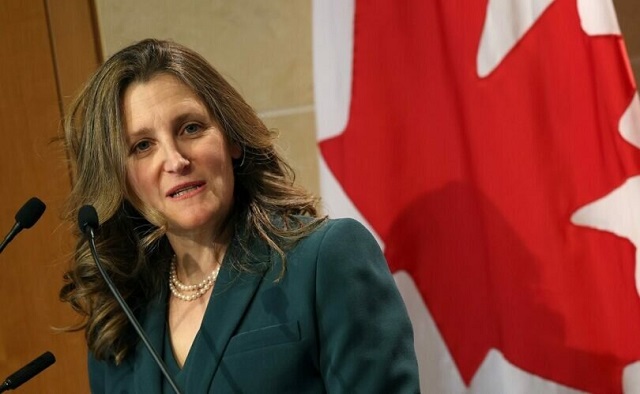
 Housing2 days ago
Housing2 days agoTrudeau’s 2024 budget could drive out investment as housing bubble continues
-

 Alberta2 days ago
Alberta2 days agoAlberta government should create flat 8% personal and business income tax rate in Alberta
-

 Censorship Industrial Complex1 day ago
Censorship Industrial Complex1 day agoDesperate Liberals move to stop MPs from calling Trudeau ‘corrupt’
-
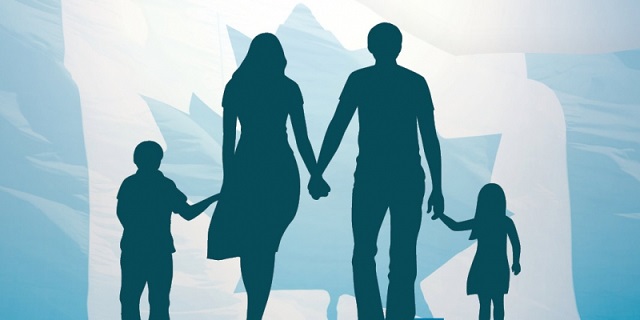
 National2 days ago
National2 days agoLow and middle income Canadians hit hardest by high marginal effective tax rates
-

 Great Reset2 days ago
Great Reset2 days agoTerrorists Welcome: Chronic counterterrorism lapses at the border demand investigation
-

 Health14 hours ago
Health14 hours agoTransgender activists are threatening the author of scathing UK report on child ‘sex changes’
-
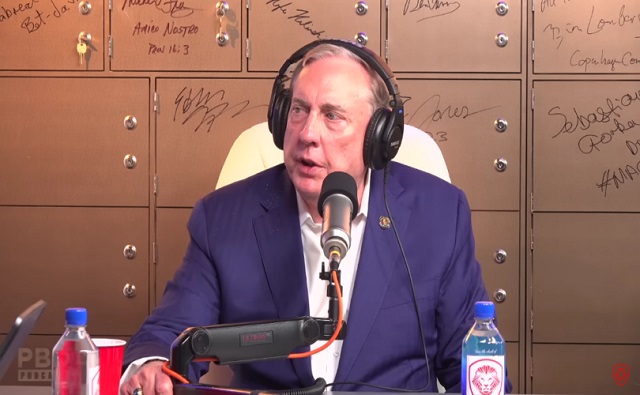
 conflict1 day ago
conflict1 day agoCol. Douglas Macgregor: US is ‘facing disaster’ as it funds overseas wars while bankrupt
-

 Energy1 day ago
Energy1 day agoA Wealth-Creating Way of Reducing Global CO2 Emissions





